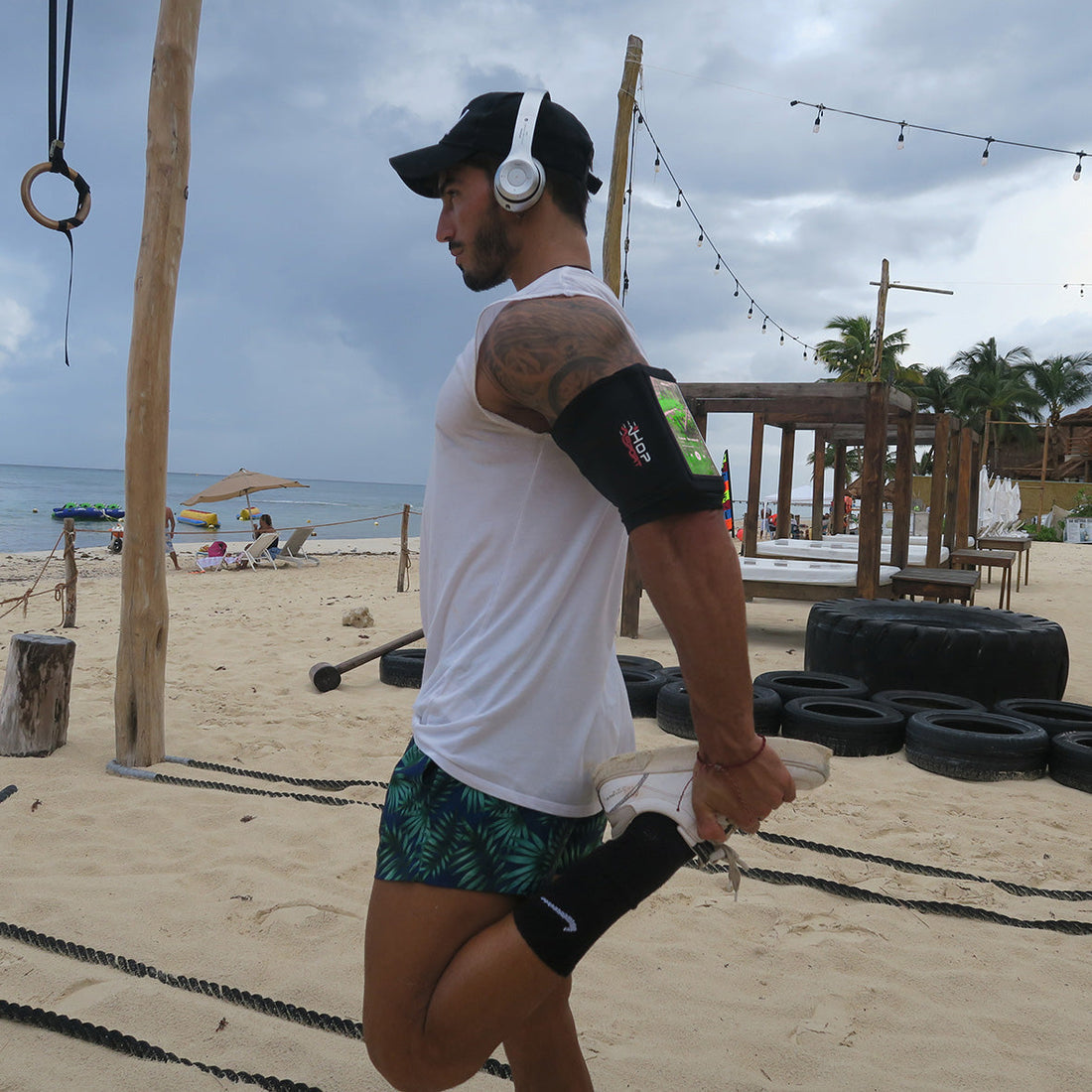Embarking on a running journey can be exhilarating yet daunting for beginners. Whether you're aiming to boost your fitness, clear your mind, or challenge your physical limits, starting on the right foot is crucial. Here are 10 essential tips to help beginner runners find their stride and enjoy every step of the way.
1. Gear Up Smartly
The right running gear can make a world of difference. Start with a good pair of running shoes that offer adequate support and fit your foot type. Invest in moisture-wicking apparel to keep you dry and comfortable. Don't forget a quality pair of socks to prevent blisters. A crucial part of your gear, especially in this digital age, is a reliable smartphone case or armband. The best options are those that are waterproof, have a secure fit, and offer touchscreen compatibility for easy access to your apps and music on the go. They should also be comfortable to wear, with adjustable straps to fit a range of arm sizes and prevent chafing. Reflective elements for visibility during early morning or late evening runs can also be a beneficial feature. Remember, the right gear enhances your running experience without overshadowing the joy of the run itself.
2. Master the Running Technique
Good form is the cornerstone of efficient running. Keep your posture straight and relaxed. Your arms should swing naturally with a slight bend in the elbows, and your gaze should be forward. Pay attention to landing softly on your midfoot rather than your heels to reduce the impact on your joints.
3. Warm-Up and Cool Down
Never underestimate the power of a good warm-up and cool-down routine. Start with dynamic stretches or a brisk walk to prepare your body for the run. Post-run, engage in static stretching to enhance flexibility and reduce muscle tightness, helping to prevent injuries.
4. Start Slow and Build Gradually
Begin with what feels manageable. It might be running for 1 minute followed by 2 minutes of walking, then repeating. Gradually increase your running intervals and decrease your walking until you can run continuously. This approach helps build endurance safely and sustainably.
5. Embrace Rest Days
Rest is as important as the run itself. It allows your muscles to recover and grow stronger. Schedule at least one to two rest days per week, especially after intense or long runs, to give your body the break it deserves.
6. Mix Up Your Practices
Variety is the spice of running. Incorporate different types of runs into your routine—long runs, interval training, and easy runs. This not only prevents boredom but also enhances different aspects of your running performance, from speed to endurance.
7. Stay Hydrated and Fuel Properly
Hydration and nutrition are key to sustaining your runs. Drink water throughout the day and more so before and after your runs. For longer runs, consider bringing a water bottle. Fuel up with a balanced diet rich in carbohydrates, proteins, and healthy fats to support your running needs.
8. Listen to Your Body
Tune into your body's signals. If you feel pain (beyond the usual muscle soreness), take a break. Pushing through pain can lead to serious injuries. It's better to rest and seek medical advice if necessary.
9. Set Realistic Goals
Setting achievable goals keeps you motivated and focused. It could be running a certain distance without stopping, completing a 5K, or simply running regularly each week. Celebrate every milestone, no matter how small.
10. Enjoy the Journey
Remember, running is not just about the finish line; it's about the experience. Take time to appreciate the outdoors, the rhythm of your steps, and the feeling of progress. Running is a personal journey, so make it enjoyable and uniquely yours.
By following these tips, beginner runners can navigate the initial challenges with confidence and set the stage for a rewarding running adventure. Remember, every runner's journey is unique—embrace yours and enjoy the run!



